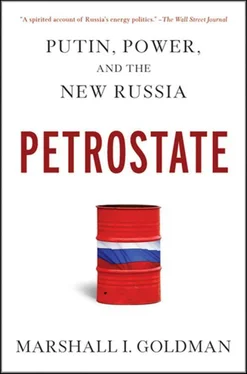The Federal Deposit Insurance Corporation serves much the same calming function. Federally chartered commercial banks in the United States are required to pay into a fund at the FDIC that is used as the name suggests, as an insurance buffer for the banks. Should a US commercial bank ever run into difficulty and find itself unable to provide cash when one of its depositors seeks to make a withdrawal, the FDIC stands ready to draw on this insurance or rainy day fund in order to provide those depositors with up to $100,000 in cash. Because of such guarantees, most depositors in the United States feel reassured that they can gain access to their money whenever they need it. Such insurance makes it much less likely that depositors (at least those with deposits of less than $100,000) will panic and withdraw their money. In the past the lack of such insurance was the cause of most runs on US banks and the main reason for the near-collapse of the US banking system in the 1930s. It was in response to this crisis that in 1933 the US Congress created the FDIC. Few depositors today have as much as $100,000 in their bank accounts, but, just in case, in October 2008 the FDIC guarantee was increased to $250,000, and in May 2009 this higher coverage was extended to 2014.
Until recently, Russia lacked such protection. With central planning, there was no need for such mechanisms. Moreover, until the collapse of the Soviet Union almost twenty years ago, the state owned all the banks and factories. So if a bank or factory was undergoing financial difficulties, the Soviet state budget would simply subsidize its operations. It was only in January 2004 that Russia adopted FDIC-like bank insurance protection that later was increased to $26,800 for each deposit. Despite this guarantee however, in 2007 there were runs on Russian banks. Between 2007 and 2009, the state was called upon to assist with the closing of fifteen banks. Apparently the Russian public does not yet trust their FDIC look-alike to provide the protection they desire for their deposits. In addition, many Russian banks are poorly run and even more poorly regulated. Consequently, bank closings in Russia are due as much to mismanagement as to the economic recession.
As reflected by these bank closings, by the latter part of the first decade of the twenty-first century, the Russian economy was beset by a number of problems. This was reflected in the rise and fall of the RTS index of Russian stock prices (the Russian version of the Dow Jones Index). But the RTS could also be misleading. For example, in 2007, as a sign of investor confidence, the RTS rose above 1,500 and dipped below it on only a handful of occasions, and then only by a few points and only for a day or two. Conditions improved, apparently, even more in the first half of 2008. As world oil prices rose and the profits of Russian oil companies reached record highs, the RTS index on May 19, 2008, reflecting all of this, hit a high of 2,498, which in effect was a fivefold increase over the low of 500 recorded but a year earlier. Yet by the fall of 2008, as the price of a barrel of oil fell, the market index weakened again so that by October 28, 2008, the RTS had returned to 549. As the effects of the worldwide recession reached Russia, the RTS fell even more in the months that followed, and on January 23, 2009, it once again dropped below 500.
Admittedly, focusing on the price of oil or the increase or decrease of stock prices to measure Russia’s economic and political health can be misleading, especially if such measures are being used to gauge how Russia is regarded in the rest of Europe. Of course the higher the price of petroleum, the more euros the Europeans pay Russia to acquire their oil and gas. But as the Europeans in 2006 and 2009 discovered to their dismay, agreeing to pay a high price, particularly for Russian gas, is no guarantee that the flow of that gas will not be interrupted or that some intermediary consumer along the pipeline will not divert the flow of gas. The intermediaries that ship Russian gas are Ukraine and to a lesser extent Belarus, both of which periodically refuse to pay the higher prices for the gas they consume that are demanded by Gazprom, Russia’s main gas-producing company. When that happens, Gazprom almost invariably cuts off part of the flow intended for sale to Ukraine and Belarus even while demanding that both Ukraine and Belarus continue to send on the remaining gas to Russia’s other West European customers who are willing to pay Gazprom its higher price. However, in 2006 and again in 2009 neither Ukraine nor Belarus agreed to pay the higher price or send on all the gas intended for Western Europe This forced the West Europeans to draw down their natural gas reserves. These incidents demonstrated dramatically to the rest of the world how much Western Europe depends on Russian supplies and how vulnerable it is to Russian pressure.
Following from this, a major conclusion of this study is that because of its control over the bulk of natural gas deliveries to Germany and other countries of Central Europe, Russia is stronger relative to Europe than it was even during the Cold War. (When I made a similar assertion on a BBC broadcast in June 2009, I immediately received an e-mail from a Yevgeniy Tsarkov, saying “Sir, I think you are out of your mind and Russophobe.”) Granted, Russia could and can still inflict enormous damage with its nuclear weapons, but it has not used those weapons because it knows that the United States will retaliate with equal devastation. By contrast, there is no comparable threat today that foreign consumers of Russian natural gas can mobilize to retaliate when Gazprom decides to cut off its deliveries to Europe. Of course West European consumers can threaten to oust Russia from international organizations like the G-8. This may prevent the Russians from such mischief on a daily basis, but, as we saw in 2006 and 2009, it was not enough to dissuade the Russians from using their natural gas for such blackmail.
With the fall of energy prices in late 2008 and early 2009, Russia became less assertive, at least over economic issues. Putin, for example, no longer speaks about building up a reserve hoard of $1 trillion in foreign currencies and dollars. Similarly, while Medevedev occasionally may still muse as he did in St. Petersburg in 2008 and in London in 2009 about how the ruble was about to become a regional if not a world currency standard that would eventually even replace the dollar, that was more a reflection at the time of a weakened dollar than an assertion of a strengthened ruble. As for the ruble, the fact that during the 2008–09 economic contraction it lost one third of its value certainly undermined those like Medvedev, who predicted that the ruble would make a reliable standard of value. As for average Russians, given their past experience with the ruble, they are almost certain to be hesitant about tying their fate to what most Russians regard as an unreliable standard that every few years seems to lose one half and sometimes more of its value.
Nonetheless, whatever happens to the ruble, because Russia is so rich in natural resources, foreigners and Russians will almost certainly remain interested in investing in Russia, especially in mining and drilling. There will also even be some interest among Western manufacturers in opening up operations in Russia. If Russia promised to provide some tariff protection from foreign imports, that would probably attract even more investors. But encouraging more domestic production will not be easy nor assured. In part this is because fostering domestic manufacturing within Russia becomes all the more challenging when energy prices are high. The reason for this is that the higher energy prices go, the higher Russian export revenues are likely to be. To pay for their purchases of Russian oil, foreign buyers will need more rubles. This leads to a higher demand and thus a higher value for the ruble relative to other currencies. But this makes all Russian exports, not to mention the export of “expensive” Russian manufactured goods, less attractive compared to “cheaper” manufactured goods that can be imported from elsewhere, particularly Asia.
Читать дальше












